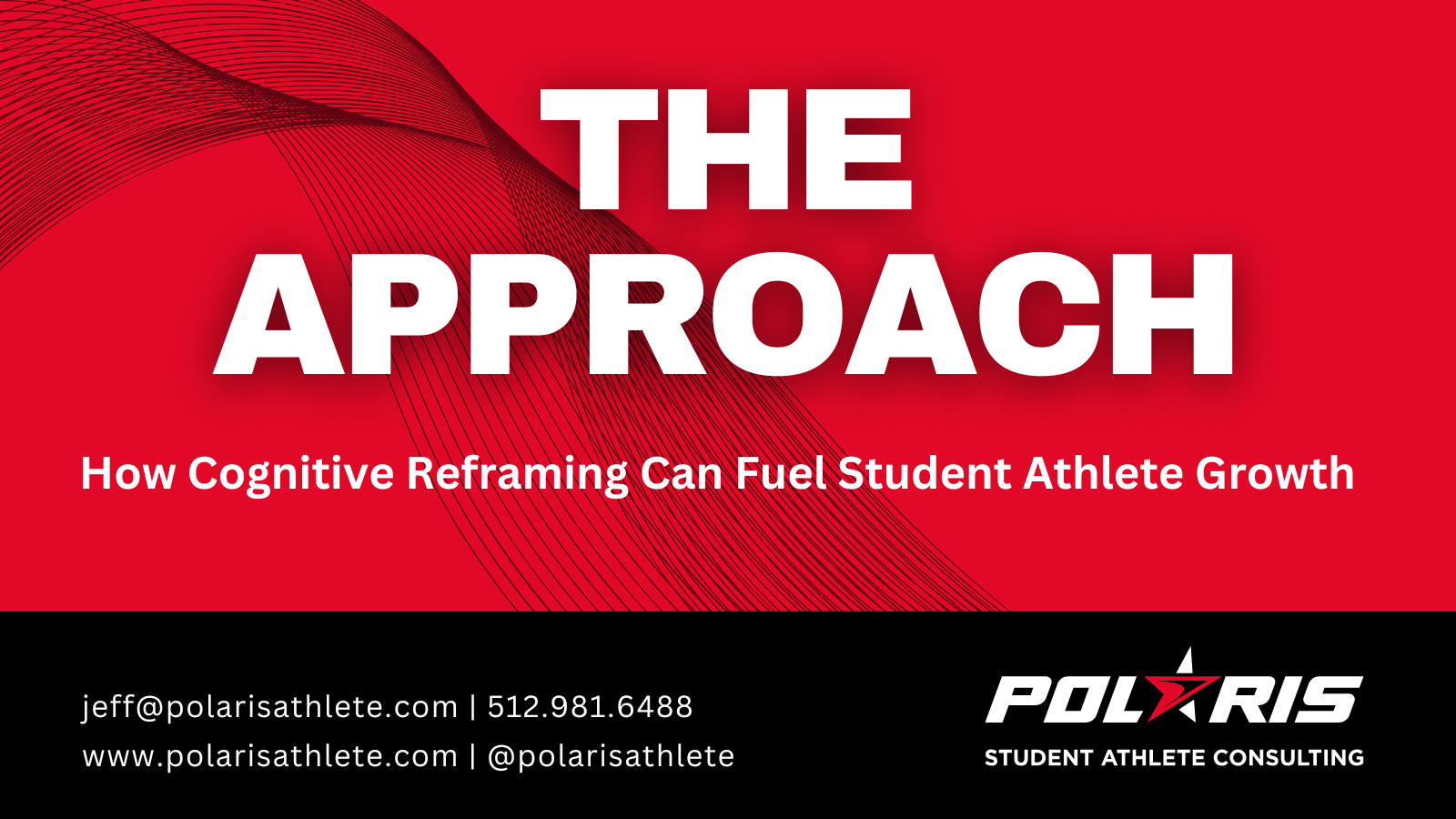The Approach
Cognitive reframing is one of the most valuable tools a student athlete can develop, and it’s something that can be practiced anywhere. Whether at home, in the classroom, or on the field, reframing helps you identify unhelpful or distorted thoughts and intentionally shift your mindset to view challenges more constructively. In high-performance environments where pressure and expectations run high, this mental strategy can be a game changer.
We recently had the opportunity to visit with one of our out-of-state student athletes who demonstrated this mindset in a remarkable way. At just 13 years old, he was invited to try out for one of North America’s most competitive independent schools for student athletes. For many, such an opportunity might feel overwhelming or even intimidating.
But not for him.
Despite the last-minute nature of the opportunity, he embraced it fully. He booked international travel, arranged accommodations, and stepped into a highly competitive environment in an entirely new setting.
He didn’t let the pressure paralyze him. Instead, he welcomed the process. This student athlete is intrinsically motivated to grow academically, athletically, and personally. He understands that success isn’t defined by perfection but by progress. He views every tryout, test, and training session not as a pass-or-fail moment but as a step forward in his long-term development.
At just 13, he already recognizes that the real magic lies in the process. He knows his goals, understands the work it will take to achieve them, and remains grounded even when outcomes don’t go as planned. While he wasn’t offered a final roster spot at this particular academy, he was genuinely grateful for the opportunity to visit, compete, and grow.
This is cognitive reframing in action.
Instead of thinking: “If I don’t make this team, I’m not good enough.”
He reframed it to: “This experience is helping me grow. Every challenge makes me better.”
Instead of thinking: “What if I mess up and they don’t want me?”
He reframed it to: “I’m proud of the work I’ve put in, and I’ll keep improving no matter the outcome.”
This mindset not only feels better, it supports improved performance, deeper resilience, and a healthier identity as a student athlete.
At POLARIS, we work with student athletes to build this kind of mental flexibility because we know it matters. From the recruiting process and academic demands to athletic competition and transitions, reframing helps students navigate challenges with strength and clarity. Coaches notice it. Teachers value it. And most importantly, student athletes benefit from it.
Want to Try Cognitive Reframing? Start with These 3 Steps:
1. Notice the Thought
Tune into your inner dialogue. Is it rooted in fear, doubt, or perfectionism?
2. Name the Distortion
Is it black-and-white thinking? Catastrophizing? Overgeneralizing? Labeling yourself?
3. Reframe the Narrative
Ask: What’s a more realistic or empowering way to see this situation? Choose a perspective that emphasizes effort, learning, and growth.
This particular student athlete that we’re working with isn’t just preparing for success. He’s building the mindset to sustain it and he will. And so can you. Whether you’re preparing for a tryout, waiting on college decisions, or managing a tough week, cognitive reframing can help you take back control and move forward with confidence. The best is yet to come!

